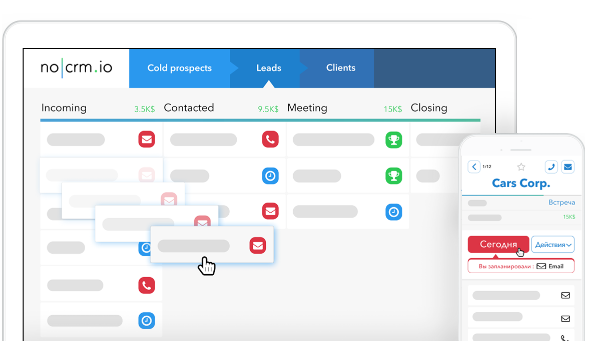The basic mechanics of a sale are pretty straightforward. SuperOffice explains that there are five to seven steps in the sales process: preparation, approach, presentation, handling objections, closing, and follow-up. This sounds simple, but the process involves lots of stakeholders and can take a long time. According to research by MarketingCharts, 74% of B2B sales take at least four months to close. And within your own sales organization, you probably wouldn’t be hard-pressed to find a representative who could tell multiple stories about deals that were on the verge of closing, only to have a last-minute hiccup derail them.

In response, many experts have suggested brute force tactics that make it easier for sales representatives to overcome objections and close deals quickly. But to make the process more efficient over the long haul, it’s critical to partner with your customer support teams. Here are five ways that your sales team can work with support agents to close deals faster.
1. Create More Personalized Sales Demos
Traditionally, salespeople perform sales demos, while a product expert leads product dems. Over the last few years, however, business leaders have discovered that it takes more than product knowledge to drive successful demos—and that customer support teams can help salespeople refine their pitches by relating to the buyer’s needs.
Robert Falcone is the author of “Just F*cking Demo.” First Round recently interviewed Falcone about how he refined his sales demo. As part of a multi-faceted demo process, Falcone starts with a five-minute discovery session, which he suggests being upfront about. “Say outright, ‘I’m going to start off today’s conversation by taking just five minutes to ask you a few questions so that I can understand which features will be most important for you,’” Falcone adds. “That way, you’re all on the same page.”
Although Falcone is an expert at the product he pitches, that might not be the case for every rep in your sales organization, especially those who are newer to the company. Your support agents can play a key role in this discovery session. Not only are they valuable resources to your reps during their preparation before a call, but they have the expertise needed to address the customer’s product-related questions during the sales demo. For more information on the subject, you can find read our tips on how to make a great qualifying call.
2. Leverage Your Support Team’s Product-Related Content
In 1996, Bill Gates published an article on Microsoft’s website titled “Content is King.” Gates predicted that content would be a major driver of revenue in the future—and he’s been proven right many times since then. Research from Demand Gen Report found that 51% of today’s B2B buyers view three to five pieces of content before engaging with a sales representative.
As you might have guessed, much of the research you’ll find about B2B content proves the importance of blogging, video, and podcasting. But Digital Marketing Institute points out that product-specific materials such as one-pagers, product sheets, and internal support documents are among the most essential pieces of sales enablement content for any company. Additionally, BazaarVoice reported that 57% of shoppers say that product videos make them feel more confident about buying.
While you could lean on your marketing team to produce this content, customer support leaders are often the most qualified to create, audit, and edit product-related materials. Not only do they have a deep understanding of the product’s feature set, but they also know your current customers’ most common challenges. Partnering with customer support to evaluate your sales enablement content not only helps you ensure accuracy, but it can also speed up the evaluation process for potential customers.
3. Analyze Your Most Common Objections
Objection handling is one of the biggest and most time-consuming challenges for any sales representative. Every potential customer will find something to push back on. Perhaps a competitor offers lower pricing for a similar product. Maybe your feature set isn’t quite as robust as the buyer is looking for in a solution. There’s an endless list of objections that even the most seasoned sales reps struggle to address. And for many other salespeople, simply knowing the potential objections can seem like an insurmountable task.
While most professionals learn common objections on their first day in sales, your customer support team can illuminate those that are unique to your company. Think back to when we discussed their deep understanding of your existing customers’ most frequent pain points. Not only do they know the pain points, but they also know how to respond to them. Take advantage of your support team’s experience and address your potential customer’s objections before they have the opportunity to raise them. For example, if existing customers are frequently unsure of how to install a desktop extension, make sure your reps are equipped with the solution to this issue on every sales call.
4. Incentivize Retention for Customer Service Agents

So far, we’ve explored a few ways that your sales team can leverage your support team’s expertise. But what’s in it for them? The answer to this question really matters because we’re asking customer service agents to go above and beyond to close deals faster. If they’re not incentivized to partner with sales, your support agents have plenty of support tickets to focus on instead.
Researchers at McKinsey & Co. interviewed sales executives to discover new ways to incentive anyone involved in a deal. Their findings revealed that support agents can make the most meaningful impact on retaining existing customers. Accordingly, they suggest incentivizing their efforts to support clients through the duration of their contracts and retaining them. “Compensation should be geared toward avoiding competition with frontline sales and incentivizing these members of the salesforce to provide as much support to sales reps and/or the customer as possible,” the researchers continue. “Such compensation could be a salary plus a bonus plan that’s based on overall team performance and/or feedback from frontline sales on how helpful someone has been in the sales process.”
5. Commit to Breaking Communication Silos
None of the tactics that we’ve discussed in this blog post stand any chance of working if your sales and support teams don’t share a commitment to open communication. In a post about the circular relationship between these two functions, Dan Tyre of HubSpot writes that it’s more important than ever for sales and support to work together, thanks to the compounded risks of churn and missed expectations.
This circular relationship is virtually impossible to create overnight, but Tyre suggests a few tactics to break traditional communication silos. In particular, he suggests that sales reps should document every detail about each customer relationship and sharing their notes with support reps. While this adds a bit of administrative work to their schedules, being overly communicative with your customer support team about a potential deal keeps them motivated to lend a helping hand, keep deals alive, and ultimately close deals faster. For more information and tips, you can check our article on how to better structure your sales team.
———————————————————————————————————————————————————
Yaakov Karda is the co-founder of Chatra.io and a slow coffee enthusiast. When not brewing or working on the startup, he helps his wife with their art projects or explores Tel-Aviv on a bicycle.


